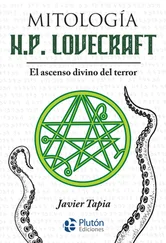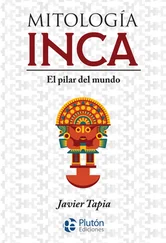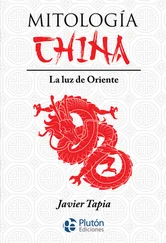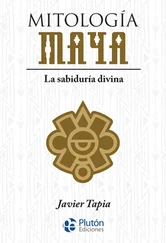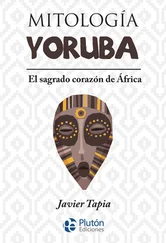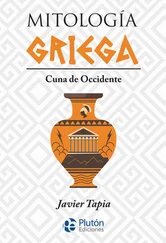Desdemona gave a little shrug. “You can write what you want, honey mou . Miltie he won’t get it.”
“It’s not illegal or anything. First cousins can marry even. We’re only second cousins. Milton went and looked up all the statutes.”
Once again Desdemona shrugged. Drained by worry, abandoned by St. Christopher, she stopped fighting an eventuality that had never been fated in the first place. “If you and Miltie want to get married, you have my blessing,” she said. Then, having given her benediction, she settled back into her pillows and closed her eyes to the pain of living. “And may God grant that you never have a child who dies in the ocean.”
In my family, the funeral meats have always furnished the wedding tables. My grandmother agreed to marry my grandfather because she never thought she’d live to see the wedding. And my grandmother blessed my parents’ marriage, after vigorously plotting against it, only because she didn’t think Milton would survive to the end of the week.
At sea, my father didn’t think so either. Standing at the bow of the transport ship, he stared out over the water at his fast-approaching end. He wasn’t tempted to pray or to settle his accounts with God. He perceived the infinite before him but didn’t warm it up with human wishing. The infinite was as vast and cold as the ocean spreading around the ship, and in all that emptiness what Milton felt most acutely was the reality of his own buzzing mind. Somewhere out over the water was the bullet that would end his life. Maybe it was already loaded in the Japanese gun from which it would be fired; maybe it was in an ammunition roll. He was twenty-one, oily-skinned, prominent about the Adam’s apple. It occurred to him that he had been stupid to run off to war because of a girl, but then he took this back, because it wasn’t just some girl; it was Theodora. As her face appeared in Milton’s mind, a sailor tapped him on the back.
“Who do you know in Washington?”
He handed my father a transfer, effective immediately. He was to report to the Naval Academy at Annapolis. On the admissions test, Milton had scored a ninety-eight.
Every Greek drama needs a deus ex machina. Mine comes in the form of the bosun’s chair that picked my father off the deck of the AKA transport ship and whisked him through the air to deposit him on the deck of a destroyer heading back to the U.S. mainland. From San Francisco he traveled by elegant Pullman car to Annapolis, where he was enrolled as a cadet.
“I tell you St. Christopher get you out of the war,” Desdemona exulted when he called home with the news.
“He sure did.”
“Now you have to fix the church.”
“What?”
“The church. You have to fix it.”
“Sure, sure,” Naval Cadet Stephanides said, and maybe he even intended to. He was grateful to be alive and to have his future back. But with one thing or another, Milton would put off his trip to Bithynios. Within a year’s time he was married; later, he was a father. The war ended. He graduated from Annapolis and served in the Korean War. Eventually he returned to Detroit and went into the family business. From time to time Desdemona would remind her son about his outstanding obligation to St. Christopher, but my father always found an excuse for not fulfilling it. His procrastination would have disastrous effects, if you believe in that sort of thing, which, some days, when the old Greek blood is running high, I do.
My parents were married in June of 1946. In a show of generosity, Michael Antoniou attended the wedding. An ordained priest now, he presented a dignified, benevolent figure, but by the second hour of the reception it was clear he was crushed. He drank too much champagne at dinner and, when the band began playing, sought out the next best thing to the bride: the bridesmaid, Zoë Stephanides.
Zoë looked down at him—about a foot. He asked her to dance. The next thing she knew, they had started off across the ballroom floor.
“Tessie told me a lot about you in her letters,” said Michael Antoniou.
“Nothing too bad, I hope.”
“Just the opposite. She told me what a good Christian you are.”
His long robe concealed his small feet, making it difficult for Zoë to follow. Nearby, Tessie was dancing with Milton in his white naval uniform. As the couples passed each other, Zoë glared comically at Tessie and mouthed the words, “I’m going to kill you.” But then Milton twirled Tessie around and the two rivals came face-to-face.
“Hey there, Mike,” said Milton cordially.
“It’s Father Mike now,” said the vanquished suitor.
“Got a promotion, eh? Congratulations. I guess I can trust you with my sister.”
He danced away with Tessie, who looked back in silent apology. Zoë, who knew how infuriating her brother could be, felt sorry for Father Mike. She suggested they get some wedding cake.
So, to recap: Sourmelina Zizmo (née Papadiamandopoulos) wasn’t only my first cousin twice removed. She was also my grandmother. My father was his own mother’s (and father’s) nephew. In addition to being my grandparents, Desdemona and Lefty were my great-aunt and -uncle. My parents would be my second cousins once removed and Chapter Eleven would be my third cousin as well as my brother. The Stephanides family tree, diagrammed in Dr. Luce’s “Autosomal Transmission of Recessive Traits,” goes into more detail than I think you would care to know about. I’ve concentrated only on the gene’s last few transmissions. And now we’re almost there. In honor of Miss Barrie, my eighth-grade Latin teacher, I’d like to call attention to the quotation above: ex ovo omnia . Getting to my feet (as we did whenever Miss Barrie entered the room), I hear her ask, “Infants? Can any of you translate this little snippet and give its provenance?”
I raise my hand.
“Calliope, our muse, will start us off.”
“It’s from Ovid. Metamorphoses . The story of creation.”
“Stunning. And can you render it into English for us?”
“Everything comes out of an egg.”
“Did you hear that, infants? This classroom, your bright faces, even dear old Cicero on my desk—they all came out of an egg!”
* * *
Among the arcana Dr. Philobosian imparted to the dinner table over the years (aside from the monstrous effects of maternal imagination) was the seventeenth-century theory of Preformation. The Preformationists, with their roller-coaster names—Spallazani, Swammerdam, Leeuwenhoek—believed that all of humankind had existed in miniature since Creation, in either the semen of Adam or the ovary of Eve, each person tucked inside the next like a Russian nesting doll. It all started when Jan Swammerdam used a scalpel to peel away the outer layers of a certain insect. What kind? Well . . . a member of the phylum Arthropoda. Latin name? Okay, then: Bombyx mori . The insect Swammerdam used in his experiments back in 1669 was nothing other than a silkworm. Before an audience of intellectuals, Swammerdam cut away the skin of the silkworm to reveal what appeared to be a tiny model of the future moth inside, from proboscis to antennae to folded wings. The theory of Preformation was born.
In the same way, I like to imagine my brother and me, floating together since the world’s beginning on our raft of eggs. Each inside a transparent membrane, each slotted for his or her (in my case both) hour of birth. There’s Chapter Eleven, always so pasty, and bald by the age of twenty-three, so that he makes a perfect homunculus. His pronounced cranium indicates his future deftness with mathematics and mechanical things. His unhealthy pallor suggests his coming Crohn’s disease. Right next to him, there’s me, his sometime sister, my face already a conundrum, flashing like a lenticular decal between two images: the dark-eyed, pretty little girl I used to be; and the severe, aquiline-nosed, Roman-coinish person I am today. And so we drifted, the two of us, since the world began, awaiting our cues and observing the passing show.
Читать дальше
Конец ознакомительного отрывка
Купить книгу


